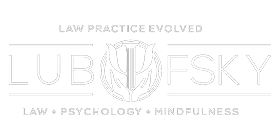Mindfulness has at its core the cultivation of a heightened ability to consciously connect with present-moment experience. Doing this often involves a process over time of dis-identification from “ego” or thought-driven notions about how “I am” or “you are,” as a “separate” individual. When we remain stuck in such learned conditioning, we are far more likely to react to difficult situations in an unconscious, defensive manner principally aimed at keeping one’s ego intact and preserving our relatively static notion of “self.”
To the extent that one’s ego derails an individual from present-moment experience (i.e., “reality”), he or she is likely to become agitated, anxious, and reactive. In the process he or she will often fail to identify creative approaches to these situations, miss opportunities to deepen consciousness, and ultimately remain stuck in old patterns of habitual reactions.
The inability to maintain one’s connection to present-moment experience can be very common when facing legal problems that may have implications for situations in one’s life that have come to form the core of how he or she has come to define his or her “self.”
Mindfulness in law practice is essential in helping clients break out of non-productive and often harmful habitual reactions to these challenging life situations, and instead open to new possibilities that extend beyond the perceived boundaries of the “self.” The inability to approach legal situations in a mindful way will often lead to recurrence of similar undesirable life situations in the future.
To learn more about the incorporation of mindfulness in law practice, contact Holistic Lawyer Michael Lubofsky at (415) 508-6263, or visit http://www.Holistic-Lawyer.com.
